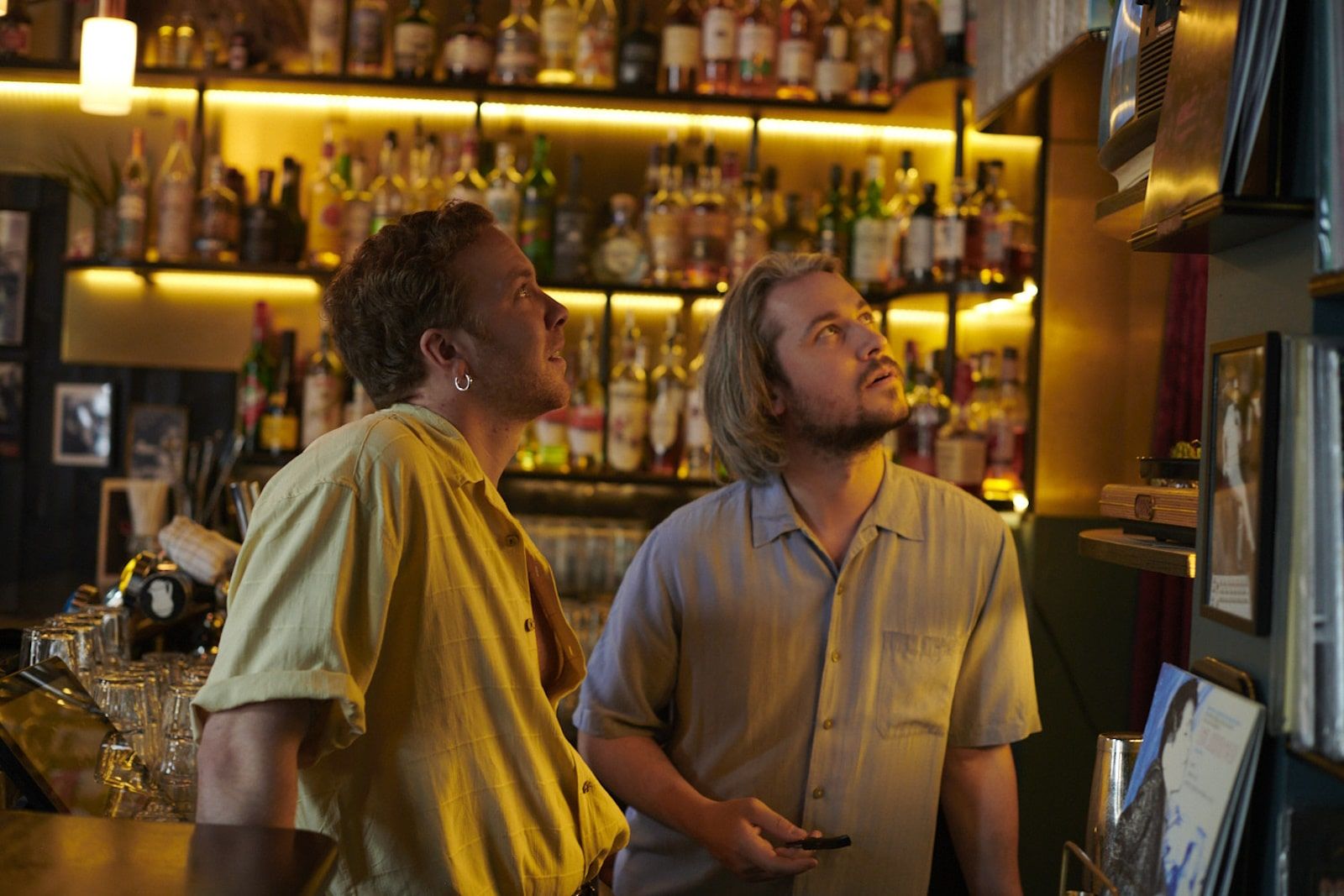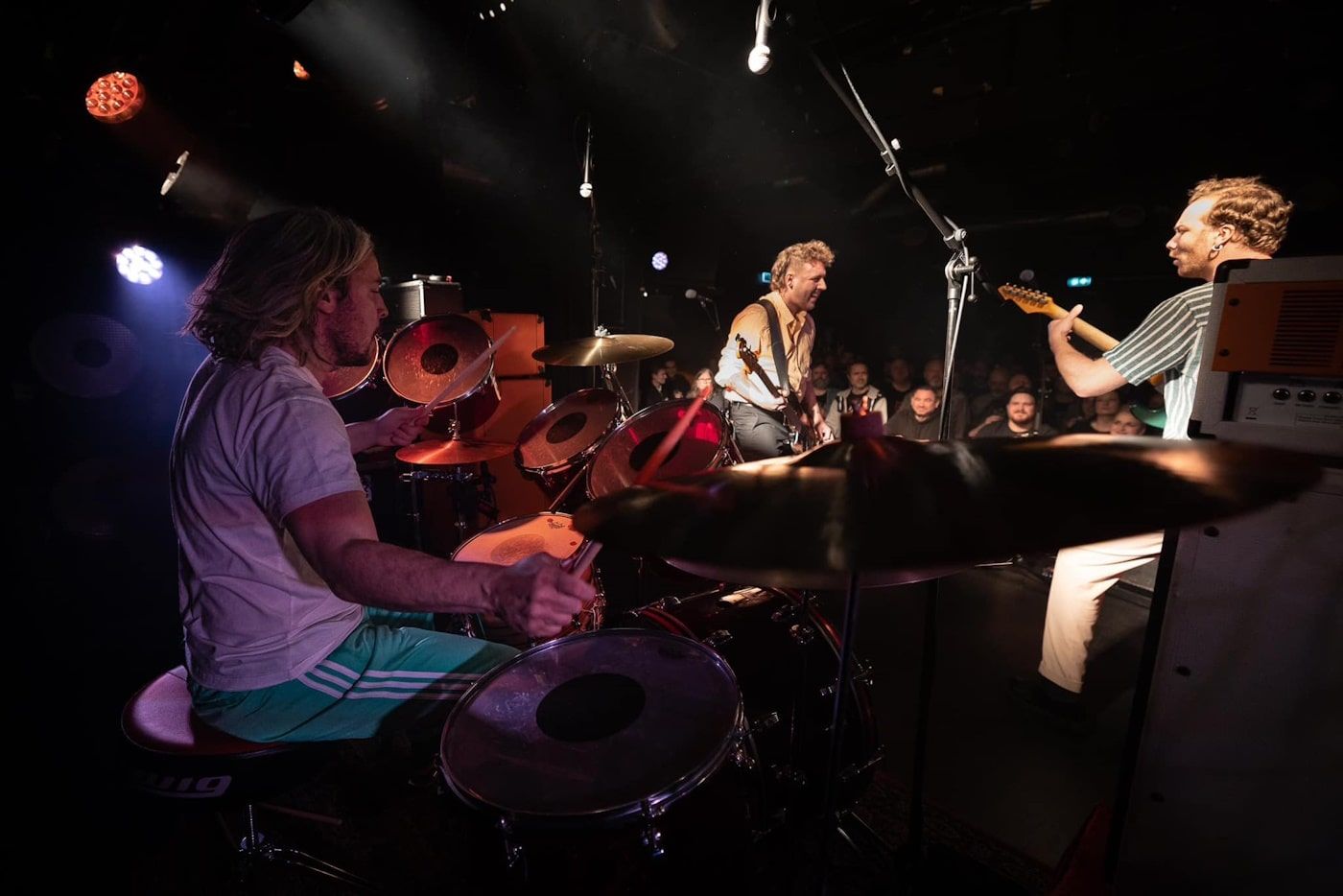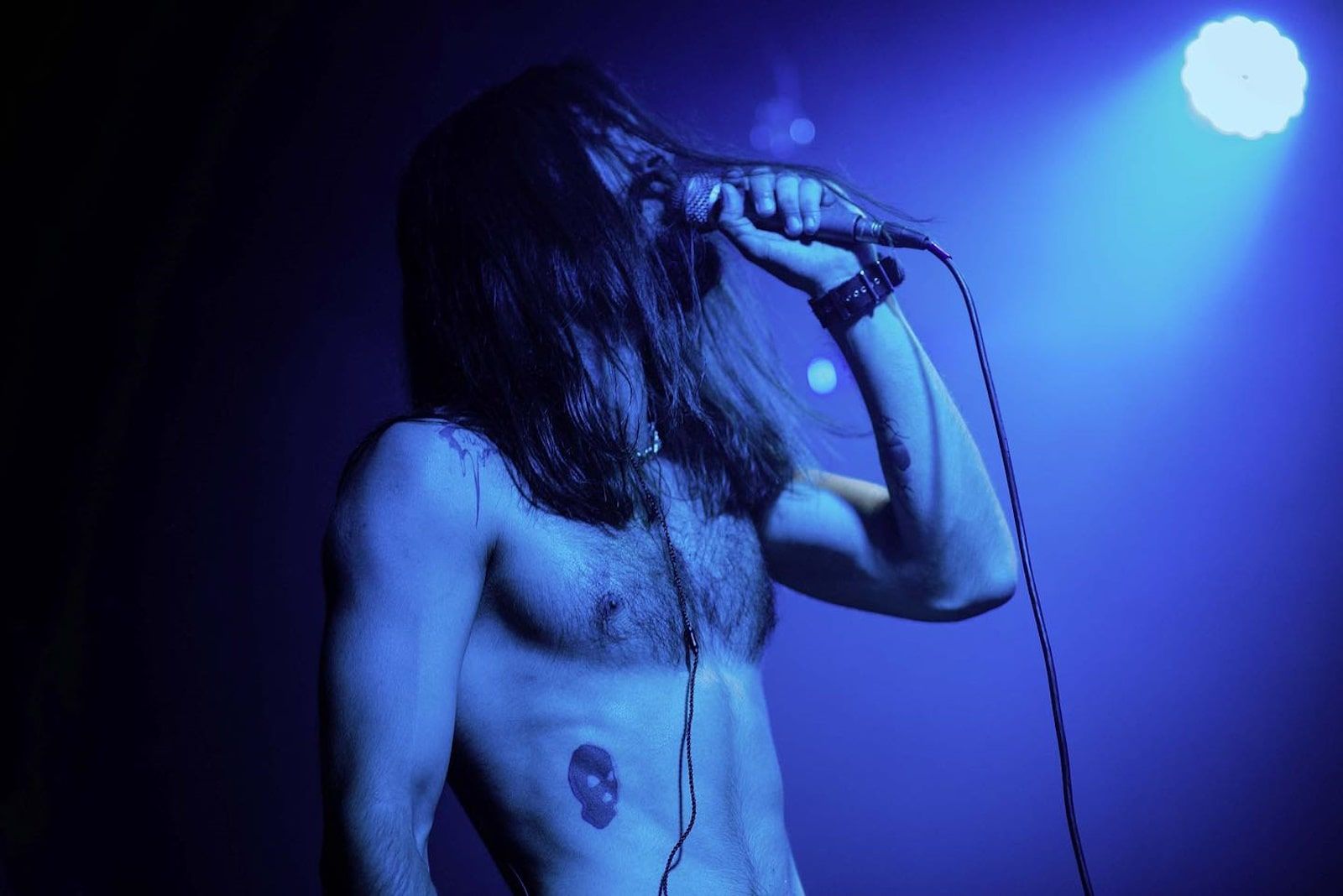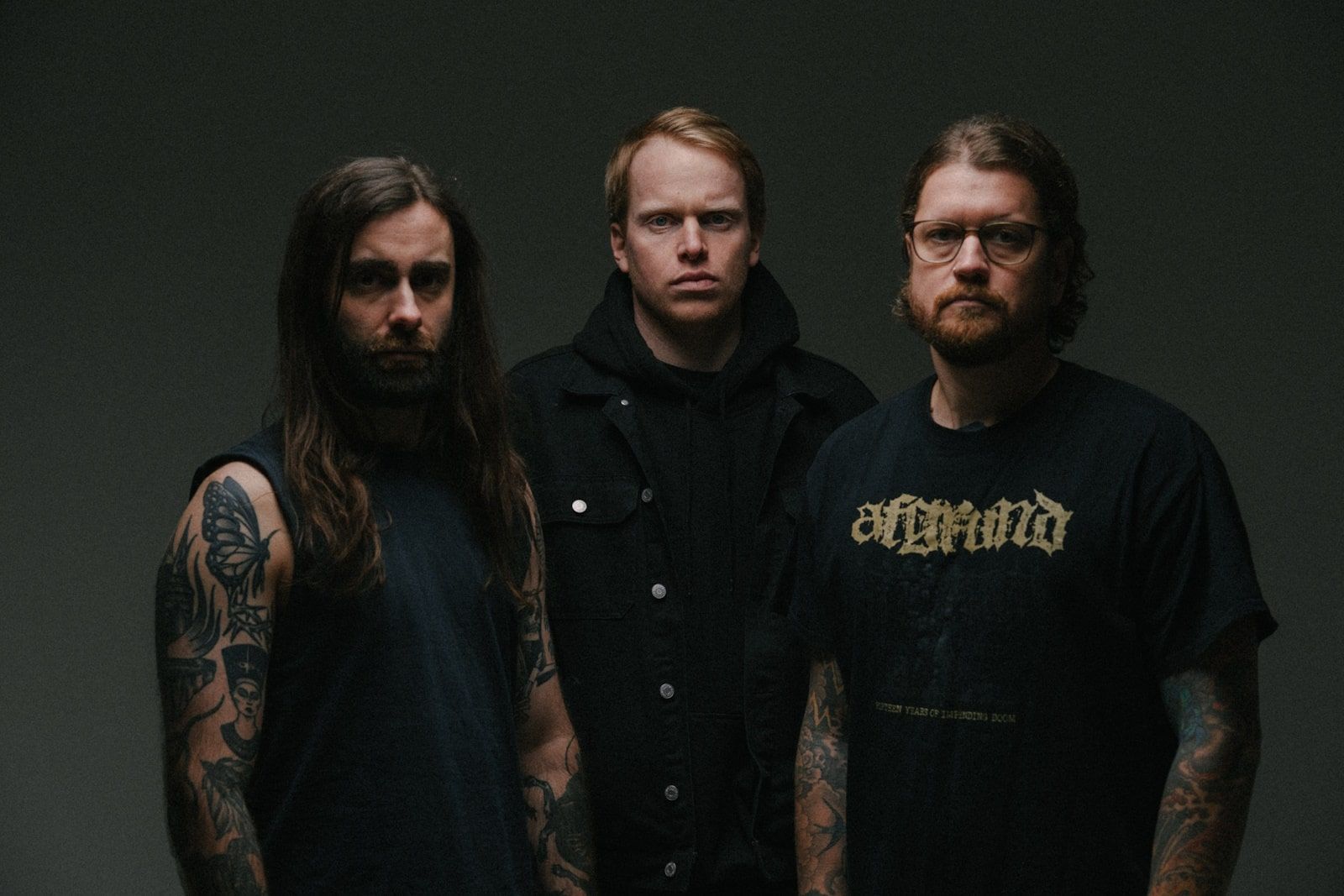As September days roll into a carpet of autumnal hues, one could argue that the soundscapes of Dead Movie Animals, a Norwegian duo whose roots lie in the hardcore band Despereaux, have found a fitting seasonal backdrop. With their debut EP, “20/20 Hindsight,” which dropped on the 8th of this month, the duo explores musical terrains imbued with the rage of At the Drive-In and the sublime aura of Depeche Mode. But to frame them solely through the lens of these influences would be a disservice to the breadth of their sonic identity.
Dead Movie Animals goes beyond homage or mimicry; they embark on a journey to encapsulate their own harsh, bleak Scandinavian mannerisms.
It’s not often that a band manages to comfortably nestle itself at the crossroads of seemingly divergent influences. For Dead Movie Animals, influences like Depeche Mode and At the Drive-In are two sides of the same coin—both angry, both rebellious, and both fond of a compelling beat. These are acts that have attempted to reconfigure the boundaries of their respective genres, a vision not lost on Dead Movie Animals. The duo sees the similarities more than the differences and employs that awareness to construct a sound that is intensely their own.
The band’s journey towards their debut EP wasn’t without its dark passages. In our interview, they spoke about how the song “A Little Darkness” essentially functioned as a catalyst for the EP. The tale begins with Per, one half of the duo, contemplating a break from music altogether. However, a jam session—just for kicks—revealed a song hiding within them, begging to be released. “To adapt or fade away,” sings the track. It’s a stark, poignant phrase but one that lays bare the duo’s philosophy.
“You are stronger as a union than by yourself, and I think our ‘union’ shines through in the songwriting.”
Speaking of unions, the collaborative process between these childhood friends was far from linear. Ego stood as an initial obstacle, encapsulated by a tense studio session revolving around the song “A Little Darkness.” At the core of it all lay the intricacies of serving the song rather than the self. They addressed this head-on, confronting their egos to realize a more selfless musical path. In the band’s eyes, ego was the shadow lurking in the dark corners, and the EP became a tool for self-examination and transformation.
Dead Movie Animals don’t shy away from acknowledging their roots in the Norwegian hardcore scene. Names like JR Ewing, Rumble in Rhodos, and Fork echo in their influences, but their primary aim is not to pay homage. They are, in essence, striving to carve out their own niche, one that does justice to the polyphonic tapestry of their background but also acknowledges the demand for innovation.
“It is not hard to become a naturally melancholic person when you grow up in a part of the world which is windy, cold, and where it is dark outside half of the time.”
Their music is not just a mere reflection of international influences but is deeply rooted in their Scandinavian heritage. There’s an evocative sense of the windy, dark, and cold elements of Norway that subtly manifests in their sound. It’s hardcore, but not the “beat-your-chest” variety—rather, it’s a piercing scream against the frigid backdrop of their homeland.
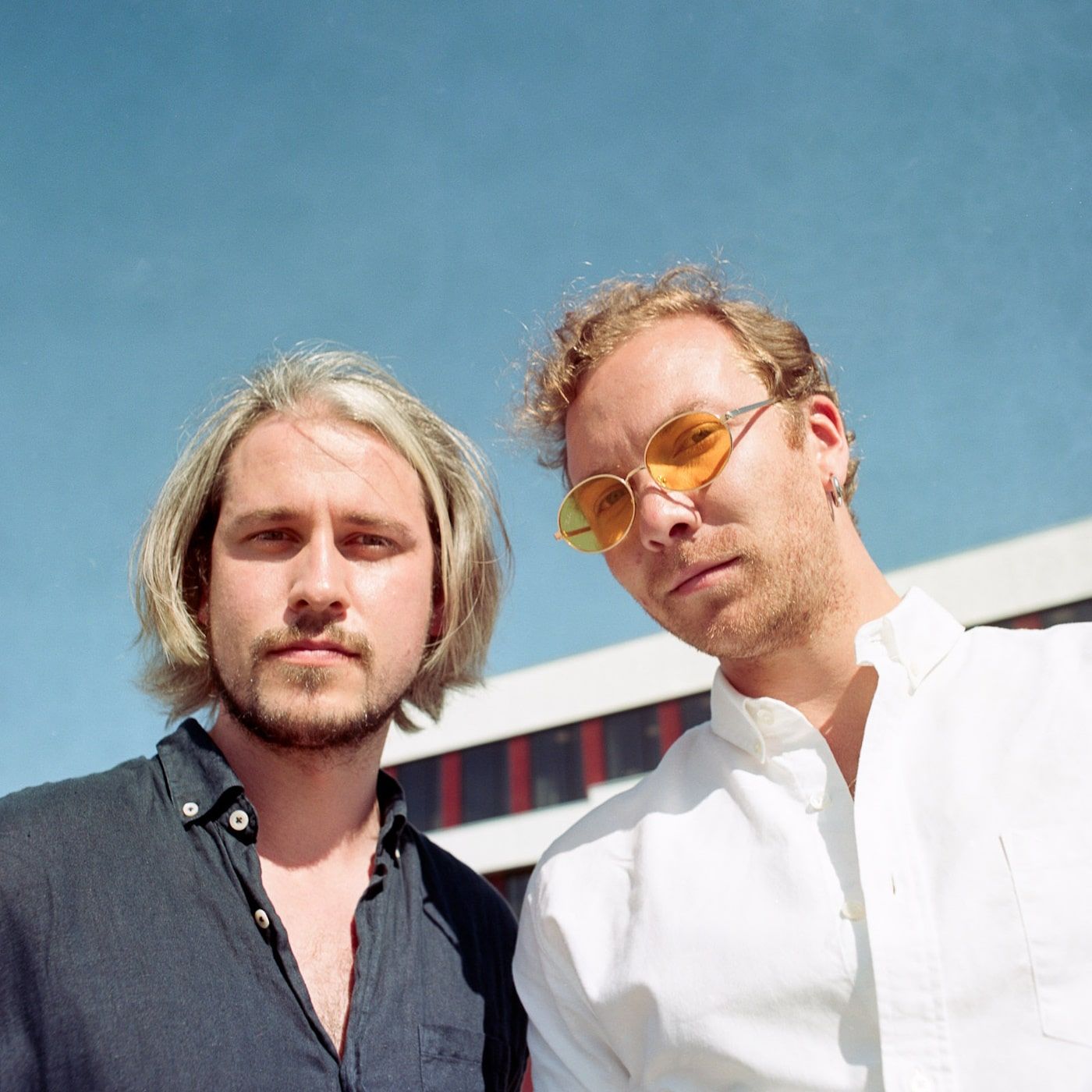
Dead Movie Animals are still in the infancy of their musical journey. The name might be new—partly because Despereaux doesn’t roll off the tongue so smoothly—but their pursuit of artistry is far from novice.
As the leaves turn and the air grows colder, this Norwegian duo invites us to adapt rather than fade away, with the haunting yet hopeful melodies of “20/20 Hindsight” as the soundtrack to that transformation.
Read our full interview below.
As mentioned, Dead Movie Animals presents a unique blend of the rage of At the Drive-In and the otherworldliness of Depeche Mode. How did you manage to converge these seemingly disparate influences into a cohesive sound?
In some ways, they are not that far from each other, Depeche Mode and At the Drive-In (although, we’d get it if someone doesn’t agree on that). We could just as well have written the “rage of Depeche Mode” and “the otherworldliness of At the Drive-In” (or Mars Volta, for that case). Those are just two acts that have inspired us very much lyrically and musically, and those are two bands that have aspired to bring something new to the table. That’s what we want to do too. And also they are both angry, rebellious and tend to present that with a great beat. We like that.
You mentioned the EP, ’20/20 Hindsight,’ was born out of a tumultuous period in your late twenties. Can you share how you navigated through that darkness to create art that tries to instill some form of hope?
Well, it was a reason why the song “A Little Darkness” became our first single. There was actually a lot of darkness, and we had to go through it. But at some point you need to let go of it. Per was in a mindset where he didn’t want to play music ever again. After a long time away from it, Simen convinced him to jam together just for fun. Five minutes into the session we suddenly had the basis for the song “A Little Darkness”. It was a Tenacious D-like moment where we could say that we wrote the whole song in five minutes. The lyrics for the first verse came out spontaneously during the jam, and it was therapeutic reading it back. “I never said that we would be okay, but the choice remains the same: To adapt or fade away”. We have chosen to adapt rather than to fade away, to put it quite pompously.
The partnership between the two of you required an explicit acknowledgment of each other’s egos. How does this openness translate into your songwriting and the EP as a whole?
Ego is in a way a big part of what got us into the darkness, if you will. This EP is a way of looking back, realizing what went wrong, but also how to cope with it. To become more selfless is a big goal for the both of us. And that’s one of the things our upcoming record is about: To actually rid yourself of egotistical tendencies. And what better way to do that than to create something together out of encouraging each other, not ourselves. You are stronger as a union than by yourself, and I think our “union” shines through in the songwriting.
The band started out with separate projects. What was the groundbreaking moment that led to merging the two, and how did a friend’s insight play a part in that decision?
Per always wanted to make Dead Movie Animals with his older brother Lars (who is also a part of Despereaux). But Lars had just gotten a kid, and obviously had other responsibilities. But, when a mutual friend of Per and Simen described their two sets of songs as “two brothers”, we realized that we had kinda been like brothers our entire lives, and it made no sense to be in two different bands. It was like one of those 90’s rom-coms: Simen took off his glasses, and suddenly looked like the partner Per had always wanted.
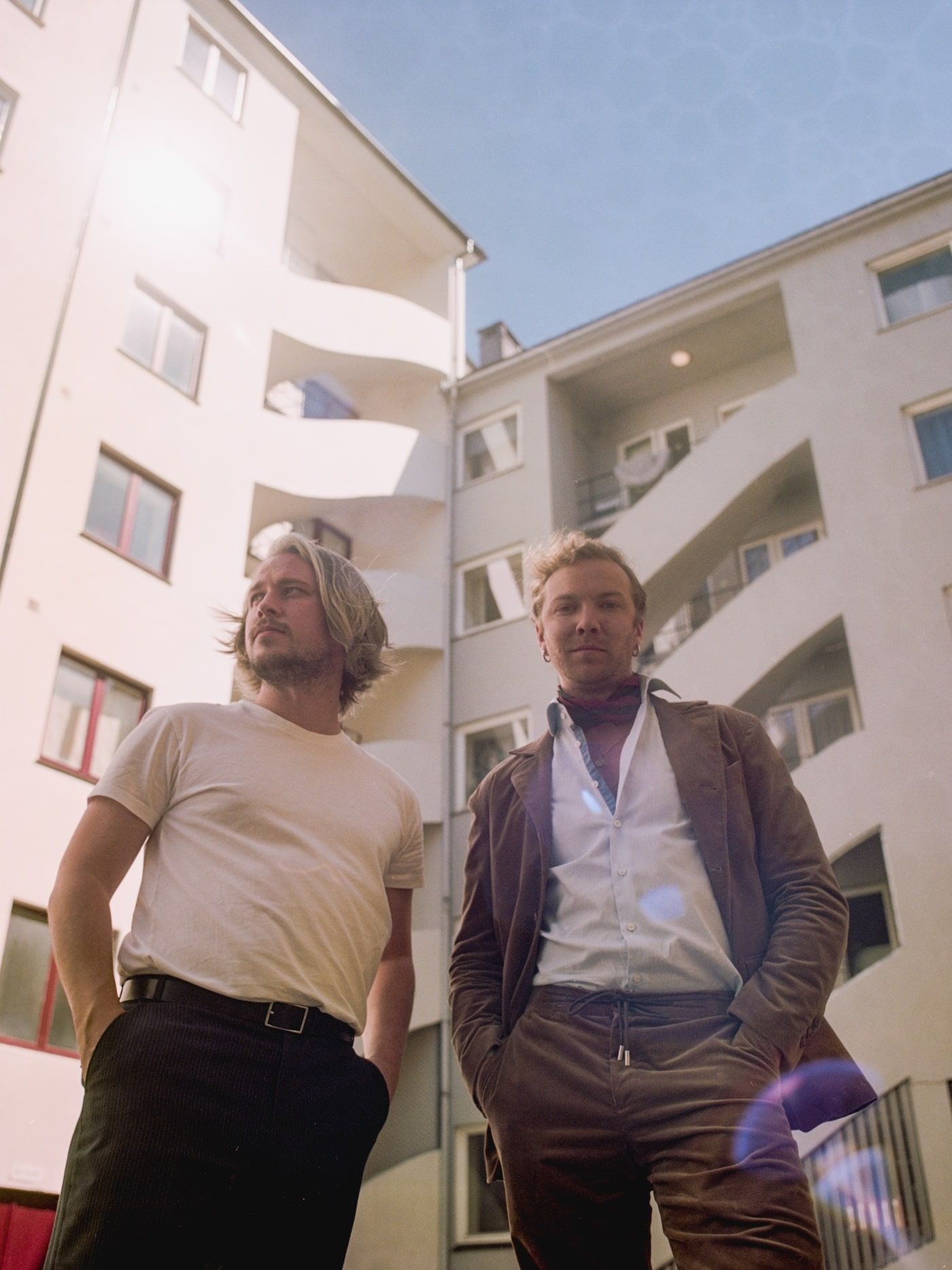
Since you’ve been playing together since you were 11, how has your musical language evolved over the years? Does this long history make the creative process easier or more challenging in some ways?
In some ways it is easier, in some ways more challenging. You benefit from many years of playing together when you jam together. You create together on the spot. We will automatically switch to a new part, and dynamically know when the other person wants to try something new. But playing together for some many years, and being friends for as many years, certain roles will start to form. And it is difficult to challenge those roles, or a dynamic that has been there for so many years. That’s something we have had to work on.
You mention the importance of “serving the song, not yourself.” Can you recall a particular instance during the making of this EP where you had to confront your ego to truly serve the song?
The end of “A Little Darkness” was just supposed to end with a big bang. But Per had to leave the studio with a rented car before Simen was done with his guitar. When Per came back he found Simen sitting with the producer recording slide guitar. It took everything Per had to not interrupt, and there were many questions. “Which part of the song is this?” and more importantly, “Why is Simen playing a slide guitar?”. After listening to the finished recording, Per claimed that Simen had ruined the song. It became a longlasting Mexican standoff. Eventually Per thought that he had to trust Simen’s intuition. Per decided to try to make a synth part on top of the guitar part to make it more presentable (at least for him). And that became the ending, which we now both think is the coolest part of the song. So yeah. Ego, in your face.
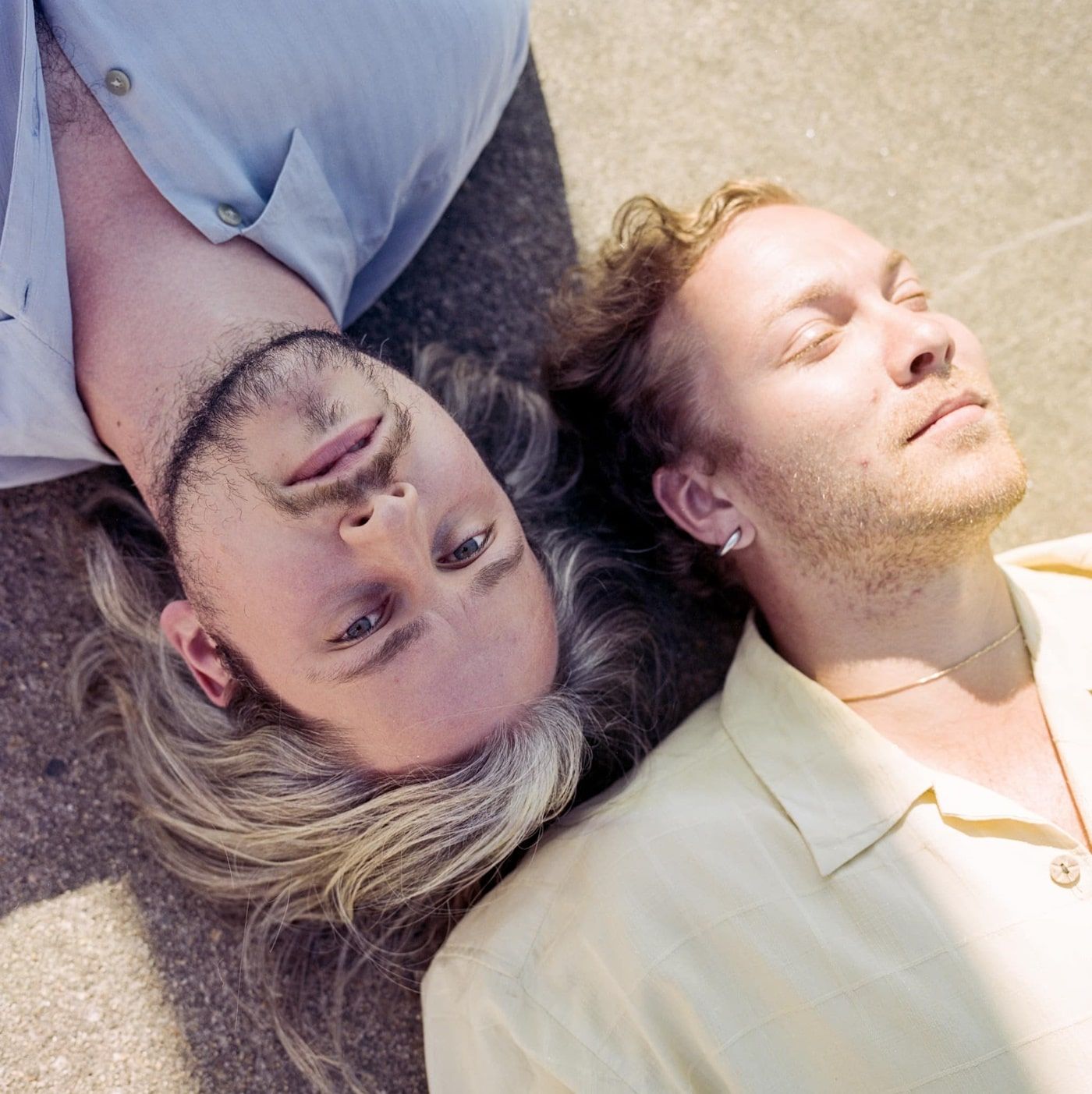
Can you talk about the Norwegian hardcore scene that inspired you as teenagers? How does ’20/20 Hindsight’ pay homage to or diverge from that heritage?
We’re not trying to pay homage to anything. There’s too much throwback music happening these days anyway. But the Norwegian hardcore scene that we grew up with as teenagers is very much a place that we draw inspiration from still. And the title track “20/20 Hindsight” is probably the song which will sound the most similar to some of those bands. The Norwegian hardcore acts that we grew up with were just so fucking great. Desperation, anguish, great drummers, and bands who all sounded similar-ish, but who also very much had their own identity. JR Ewing, Rumble in Rhodos, Snöras, Fork, Like Rats from a Sinking Ship, Dominic, Desperado, Sigh & Explode, Kambodsja and Haust. All of these bands are just fantastic! And the music holds up today, we think.
The name “Dead Movie Animals” replaced “Despereaux” partly due to pronunciation difficulties. How does the new name encapsulate your band’s essence better than the old one?
A happenstance is that Despereaux is a movie animal (a little french mouse knight). And given that Despereaux is no longer active it kind of makes sense. We are a dead movie animal. But, I don’t know if we are the best people to determine whether or not this new name encapsulates our band’s essence better.
You refer to yourselves as a “two-headed monster” musically. Could you elaborate on how this dynamic manifests in your live performances?
George W. Bush famously said the right hand now knows what the left hand is doing while mistaking his right from his left hand. That is sort of how we work. Live, we will know each other… but also when we experience our own form of bushisms, we will have a way to work around that. We will have each other’s back when one of us fuck up.
Being based in Norway, how does the Scandinavian culture and atmosphere bleed into your music, especially given your description of presenting it in a “harsh and bleak Scandinavian manner”?
It is not hard to become a naturally melancholic person when you grow up in a part of the world which is windy, cold, and where it is dark outside half of the time. And there is a lot of melancholy in our music. Scandinavian hardcore can often not sound like a beat-your-chest hardcore which you may find in other parts of the world, but more like a person screaming about how cold it is all the freaking time.
How has the local Norwegian scene reacted to your new project so far, considering you both have a history in Despereaux?
Well. Half of our songs are part Despereaux, in a way, in that they were written specifically to be a part of a Despereaux album. A lot of the old Despereaux songs were written by us two together (Hugging the Cactus, Renegade, Hiatus as in I Hate Us to mention a few), so musically it should have some of the same feel. The main difference is trying to make the songs more concise, to the point, but at the same time broadening the genres.
The feedback we have gotten has been very positive. One guy said it was undeniably Despereaux but more psychedelic in a way. We can live with that. I think the big change is that this band has allowed Simen to be more unhinged on the guitar.
You mentioned tools to maintain a cooperative creative space. What other tools, aside from ego acknowledgment, have you found effective?
To challenge each other. For once, let’s not start with a riff. Let’s start with a vocal line, and build around that. Or just going “hey, why don’t we make an acoustic song for a change?”. But it is also important to just make time to be friends.
The other day we were gonna meet to do some band business, and we just looked at each other with a dead tired look and decided to skip it. Simen bought a shirt, Per bought some candy, and we watched the new Mission Impossible film. It was a good day.
You’ve known each other for years and been through the highs and lows. What’s the most profound lesson your friendship has taught you that also reflects in your music?
Some people will just be a part of your life forever. And I think we just have realized that. And I think maybe that we have a lot of respect for our different personas, and that reflects into our music as well. You want your friend to succeed, in music and in life.
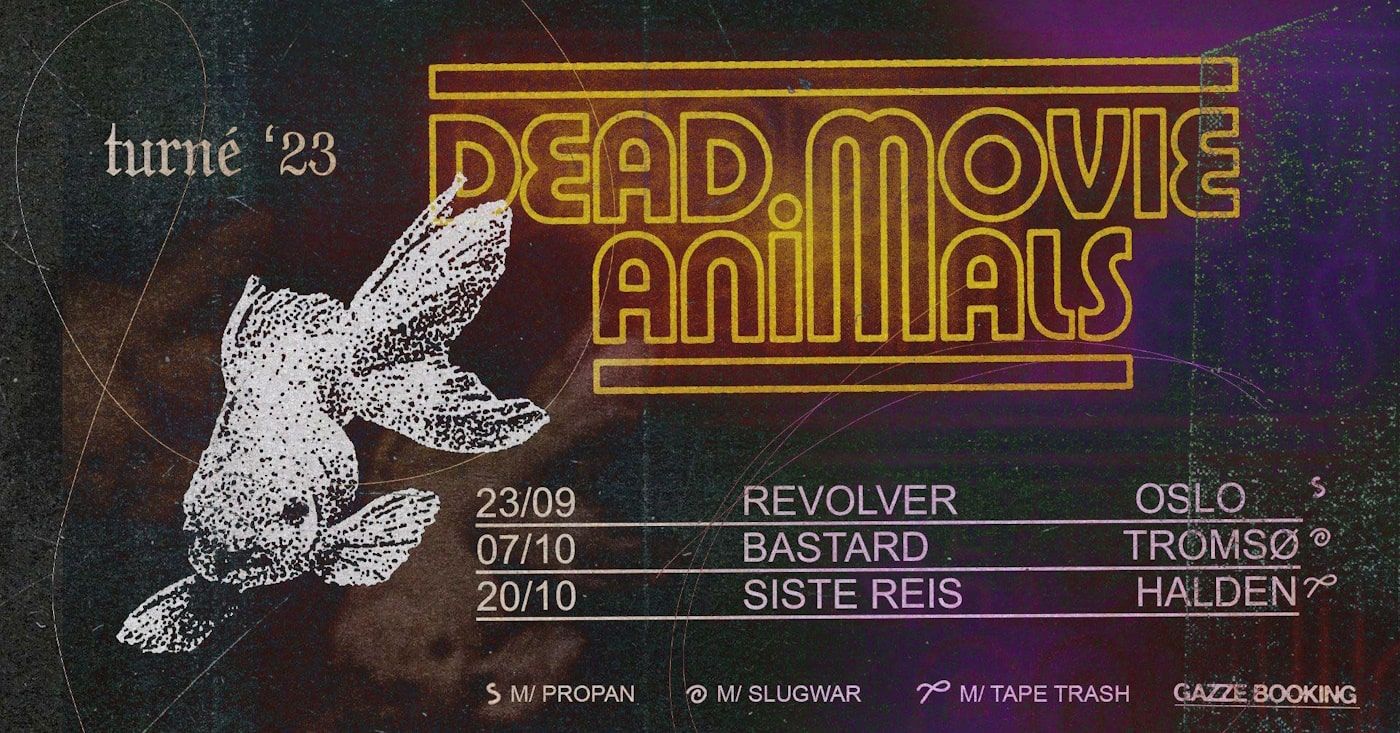
Lastly, what do you hope listeners take away from the EP, and what’s next for Dead Movie Animals?
Well, we hope listeners take away that it is a strong EP. That these cats can play. But we want to just maybe convey that things are gonna be okay. In the end. If you get defeated, there are ways to get up again. Never mind the naysayers. Be positive. It is much harder to be a positive person than it is to be a cynical person. Be a light for the people around you, and if you no longer can be, it is okay to shut down. You can’t get turned on if you’re always on.



